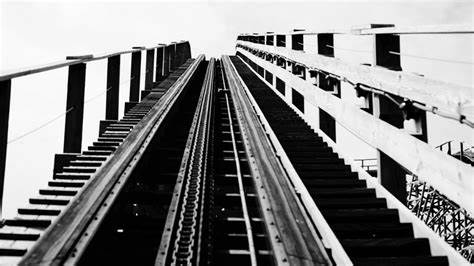Those who are ignorant of history are doomed to repeat it.
Some people just have to learn the hard way.
Yes, those are platitudes that many of us like to spout when history DOES actually repeat itself, and when young anarchists are persuaded or paid to give communal and what we call communistic living a shot. Really. We do this. It is happening in multiple corners of the internet, including Professor Jonathan Turley comparing what is happening right now to the French Revolution when the mobs in Paris defaced quite a bit of property and destroyed anything that reeked of privilege. Personally, this writer believes a more apt comparison can be made to other ugly times in history, but the point is the same: the people were sent to the brink.
With the current generation of young anarchists claiming what amounts to colonies within American cities, trying out communal living for the upteenth time in trying to improve on the Paris Commune of 1871, the words of the first governor of Plymouth Plantation – the original American commune that failed – resonate.
(Forget the tall tale that is told about the Pilgrims and the first Thanksgiving which is taught in schools and has become legend. The real truth is a lot less romantic.)
From The Story of the Plymouth Commune:
The real story is much more interesting than the simplified version we learned as school children and offers valuable insight into solutions to our economic problems.
Over half of the 101 Pilgrims who first landed on Cape Cod were dead within the first few months of their arrival, victims of disease, harsh weather conditions and malnutrition. Over the next three years, 100 more settlers joined Plymouth Plantation, but the colony was barely able to feed itself. According to William Bradford, the first governor of the colony, the Pilgrims were so destitute that “many sold away their clothes and bed coverings [to the Indians]; others (so base were they) became servants to the Indians and would cut them wood and fetch them water for a capful of corn; others fell to plain stealing, both night and day, from the Indians … .”
Why was this happening? New England may not have the most temperate climate or the most fertile soil, but the Native Americans had managed to grow food and feed themselves. What prevented the Pilgrims from doing likewise?
The answer, it turns out, was an incorrect political economic decision imposed on the colony by the investors in the Mayflower. Before you blame capitalism (a term which had not yet been coined) and bankers, however, understand that the cause of the Pilgrims’ problems was the decidedly anti-capitalist property distribution scheme these investors imposed. They assumed that common property ownership would be the most profitable arrangement under which the Pilgrims could work and produce in order to pay back the money fronted them for their voyage. These investors turned Plymouth Plantation into a collectivized farm.
The results were disastrous. Where there is not ownership there is no pride and little incentive. Governor Bradford explained it this way: “For the young men, that were most able and fit for labour and service, did repine that they should spend their time and strength to work for other men’s wives and children without any recompense.” Those who did more of the work also felt it unjust that they should receive no greater reward than those who did little, Bradford said, and husbands resented that their wives were forced to cook and care for men to whom they were not married.
The problem was solved when each household was given a private plot of land to tend. “This had very good success, for it made all hands very industrious,” Bradford reported, “so as much more corn was planted than otherwise would have been by any means the Governor or any other could use, and saved him a great deal of trouble and gave far better content.”
Bradford blamed the failed collectivization experiment on “that conceit of Plato,” referencing the Greek philosopher’s advocacy of collective ownership of land, and said those who believed communal property would make people “happy and flourishing” mistakenly thought themselves “wiser than God.”
Those who blame the “greedy investors” for this debacle miss the point. The Pilgrims were not in conflict with those who had enabled them to flee to the New World but with each other. Some saw an opportunity to slack off while others supported them, and those willing to work became decidedly less willing when they saw no more benefit to themselves than to their lazy fellow colonists.
As is always the case when an economic system fails, it was a failure of human nature rather than the system. But since human nature itself is eternal and does not seem to change no matter how hard utopians try to force it to, it makes sense that a system which accepts human nature and works with it to produce the best results will succeed.
Seriously, communal living and work distribution only works in the Biblical sense, when dedication to God is involved.
From the Acts of the Apostles, Chapter 2:
[42] And they were persevering in the doctrine of the apostles, and in the communication of the breaking of bread, and in prayers. [43] And fear came upon every soul: many wonders also and signs were done by the apostles in Jerusalem, and there was great fear in all. [44] And all they that believed, were together, and had all things common. [45] Their possessions and goods they sold, and divided them to all, according as every one had need.
[46] And continuing daily with one accord in the temple, and breaking bread from house to house, they took their meat with gladness and simplicity of heart; [47] Praising God, and having favour with all the people. And the Lord increased daily together such as should be saved.
And even then, personality conflicts prevent true peace and tranquility in communal living.
It can be done, solving the conflicts, but it takes change on the part of at least one person to make it happen.
And to get the transformation to take place, the person changing must be at the brink, the precipice, when they think nothing else will solve the problem, a lot like an addict admitting they have hit bottom.
An illness. A marriage or any other relationship falling apart. Financial ruin. A special needs family member. A profession that dies. All of these situations force change that either encourages growth or results in disaster.
In the current national situation where we find ourselves: Freedoms in peril; A nation in danger of dissolving; Decades of work destroyed….
That’s what it is taking to get the people to wake up, and walk away from the dark side.

What doesn’t kill you makes you stronger. (I’m full of these platitudes today.) What we are witnessing is the American people being taken to the brink. We, the red-pilled and the people who understand that the CHAZ colony in Seattle, among others, is a futile exercise, see the entire situation as a demonstration of weakness among Democrat leaders – which it is – but those who are still supportive of Democrats don’t. They still reside in an echo chamber that has nothing more to say than Orange Man Bad, and mail in voting. That echo chamber is in the process of being destroyed.
4464
Q !!Hs1Jq13jV6 ID: 4b50f0 No.9600507 📁
Jun 13 2020 15:15:27 (EST) NEW
The ‘how’ will be hard to understand for most.
Focus on the ‘why’.
The ‘when’ is now.
Q
Why is this happening? To save the nation, and the world, from enslavement and murder by a group of people who think they were created more equal than others. No, it is not going to be pretty. It is going to be rough, and there are times it will seem that all hope is lost.
In the end, though, God wins.

In the meantime, we’re in for a wild ride. Buckle up.










